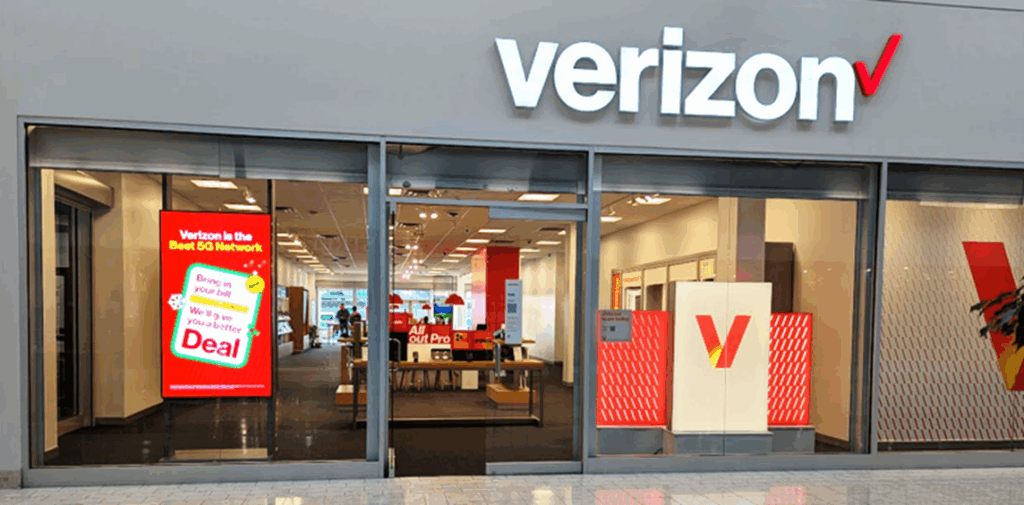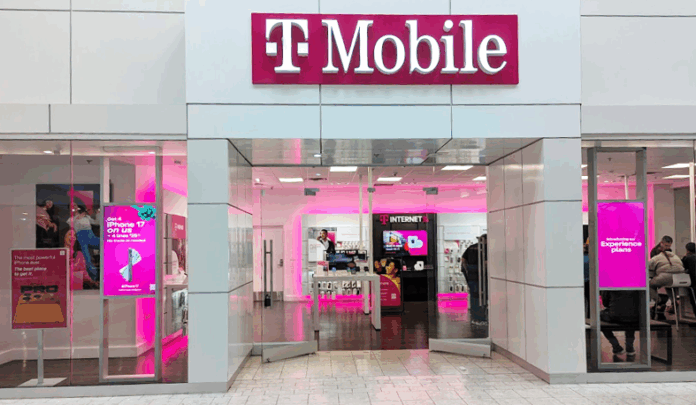As of mid-2025, there were 17.4K postpaid carrier stores, down from 17.6K stores in mid-2024
We hear a lot about the evolution of telecom retail. Stores going away, we heard in 2020. Phone delivery is the path forward, we are told, as carriers launch delivery services. What about vending machines? Maybe apps will change retail.
Telecom retail in 2025
The first half of the 2020 decade is over and we know the results for the first half of this decade. As of mid-2025, there were 17.4K postpaid carrier stores, down from 17.6K stores in mid-2024 and 18.2K stores in mid-2023. Most of the shrinkage of recent years is explained by the consolidation of former Sprint stores into the T-Mobile retail footprint. These numbers are sourced from the Wave7 Door Report, which has been published twice per year for the past decade by Wave7 Research.
The number of prepaid stores has actually risen, growing by 400 to 15.5K between mid-2024 and mid-2025, as I said at the All Wireless & Prepaid Expo in August. There are more than 1,600 cable company stores selling wireless services along with cable broadband and this number is growing slowly.
Is phone delivery the ticket?
Carriers have broadly experimented with phone delivery and this effort is ongoing. There have been enough failures of these efforts that my mind wanders to the various videos of failures of early flying machines, such as this one on YouTube.
First there was Sprint’s Direct 2 You service, a brainchild of then-CEO Marcelo Claure. The service launched in 2015 and was shuttered by 2017, as reported by Fierce Wireless. Recently, Boost Mobile has been touting its Store-to-Door delivery service, as seen in this October video. Wave7 Research recently reported that the AT&T Right to You delivery service is no longer an option. As to Verizon’s Pro on the Go delivery service, it is no longer seen as an ordering option and is not seen at Verizon stores. A 2021 RCR report about the service is here.
T-Mobile has announced “same-day delivery when ordering a new device on T-Life” that is “powered by DoorDash Drive.” This will be interesting to watch.
Activation is a pain point
Activation has long been a complicated, time-consuming process. There have been efforts to address this, as Sprint Wholesale at one point had a program for preactivated handsets for its MVNO partners. Fast Company in April reported about a trial effort for sales of preactivated Straight Talk handsets via vending machines. However, little is known to have come out of the effort.
T-Mobile just announced a “15-minute experience” for switching to T-Mobile via the T-Life app. This is a good start, but carriers need to do more to make activation quicker and smoother.
SummitX telecom retail conference by iQmetrix
iQmetrix in October hosted its annual SummitX conference in Carlsbad, CA. I attended the conference and it was an enlightening event attended by telecom retail leaders from around North America. My summary of the state of U.S. telecom retail from the 2024 edition of SummitX is here. A recap of this fall’s conference by iQmetrix is here and an October 30 press release about the conference is here. A three-minute clip about the conference is here.
iQmetrix executive Jason Raymer spoke at the conference, citing U.S. Census Bureau data that 84% of U.S. retail stores across all industries still happens in physical stores. Raymer spoke about a move toward “phygital” customer experiences that blend digital experiences with physical ones. He presented the results of a survey of telecom retailers, with 77% of respondents saying they “expect to see increased use of in-store Augmented Reality” or “phygital” experiences. The survey also indicated that 60% of respondents “expect growth in in-store holographic displays of brand ambassadors and virtual assistants.”
At SummitX, iQmetrix introduced the “Store of the Future,” which was visited by attendees. The store “was a ‘fully operational, immersive retail environment’ built on one clear principle: Human Experience First,” iQmetrix said.
Guest at this “store” received an NFC-enabled “key” that allowed for a personalized greeting, enabling them to order coffee, consult with a store rep, and treat their device to a “phone spa,” where their device could be sanitized. The process also presented repair services. There was also a “Genius Bar” for demos.
My favorite part of the Store of the Future was definitely the coffee pot. Speaking of which, I tweeted in April about my visit to a Consumer Cellular store in Oklahoma. The store had a Keurig machine with a broad choice of coffee and tea options. The Keurig machine was strategically situated next to a comfortable couch that was adjacent to a large touchscreen machine where reps could demonstrate plans and savings. Genius. It is no surprise that Consumer Cellular is growing.
View from Europe: ‘Physical experience matters’
After returning from SummitX, I touched base with Maplewave executive Will Gibson, who is based in the U.K. and is well-versed on international telecom retail trends. Maplewave provides a telecom commerce platform, and its website is here.
I think Maplewave is on the same wavelength with regards to coffee. The company has told its clients:
Telcos now sell everything from mobile and fibre to gaming, home security, Wi-Fi mesh, and streaming. You can’t sell a home package in two minutes. You need trust, space, and time to explain it. That’s why physical experience matters. When a customer can sit down, talk, try things out, and feel looked after, sales rise and satisfaction follows.
Starbucks used to have a position as a “third place” that was somewhere between home and work. Maplewave believes that this could open up an opportunity for carriers.
Conclusion: Evolution, not revolution
As detailed above, the number of U.S. telecom stores has been close to flat, as choice of carriers is a very important, but also complex process that implies a high level of involvement. I think that the number of stores likely will slip modestly going forward, net of cutbacks from Verizon, T-Life usage, and the future maturity of the Total Wireless footprint.
Carriers would be well-advised to consider platforms and processes that are informed by digital evolution and the move toward more “phygital” experiences. “Physical experience matters,” as Maplewave said, and this level of customer experience should be evaluated.
And more coffee pots? I think Consumer Cellular got that one right.




